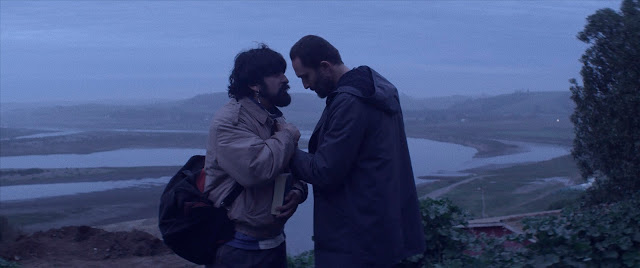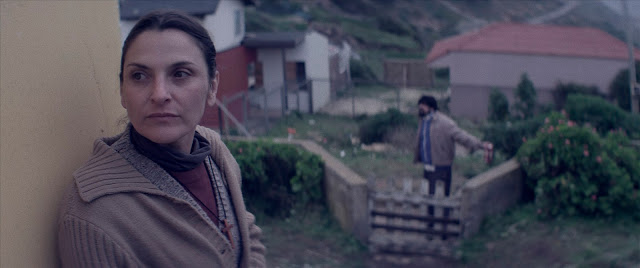The Chilean movie introduces us to four Catholic priests who live together in a cottage in a remote location, far removed from much of civilisation. This club, you see, is not an institution any of us should aspire to enter. This is a place for sinners to go and repent, to pray before they die; it is a place of unholy men who must seek holy salvation before they meet their maker. This is a place the Catholic Church consign their more troubled and troubling members to live out their lives away from the children they abused, the society they harmed and, ultimately, the threat of bad press toward the Vatican.
This, I cannot clarify enough, is not a date movie. Larraín's feature is a film full of the sick and the sickening; it is a picture for those with the strongest constitutions only. We hear stomach churning recollections of the grotesque degradations inflicted by the men of the cloth and the harrowing effects these actions had on their survivors. It is impossible not to recoil in horror and outrage at a graphic monologue relayed early in the film which systematically lays out the nature of one of the priest's abominable crimes.
Yet, perversely, beneath the sorrow and the rage, The Club is a film of great beauty and insight. We meet individuals who have committed the most heinous deeds imaginable but, in no transparent way, do they consider themselves guilty of any wrong-doing; the Church's acts have provided them with impunity against the law and, in effect, absolved them of any crime. Great responsibility, we learn, only comes with great power if someone is able to take those to task those who abuse their position. Before death greets the priests we, the audience, cry out for someone to bring justice to the universe. Who knows if their is an afterlife or how it would treat them?
Watching much of The Club is to despair at humanity. The camera frames the priests with the same non-judgmental attitude as their live-in nun who placates, and even pampers, them and the same level of non-interventionist action as those who may have known about the "holy" men's wickedness but refused to speak up. The appropriate levels of disgust and rage is left to those in the audience who watch the movie. That is until, thankfully, the priests are investigated by another man of the cloth, Father Garcia, who dedicates all his energy into making certain his fellow Catholics understand that they have been consigned not to a comfortable retirement home but, instead, to a house in which they must strongly repent. And, in order to repent, our hero must make the priests realise and understand their own culpability in bringing evil into the world.
Following on from his Oscar-nominated No, Larraín further consolidates himself as a powerful and uncompromising film-maker not afraid to tackle unsavory issues in both cerebral and guttural manners. This is a cold, sterile movie but one which continually challenges our judgements and asks us to consider the use or religion in contemporary society, and morality in this secular age - who gets to decide what is right or wrong and what punishments should be? Is it God himself, the government, vigilante mobs or, we, the audience watching the film? This a powerful movie but one which won't give easy answers - indeed, none may exist.
THE CLUB directed by Pablo Larraín is in UK cinemas 25 March 2016 #TheClubFilm
There will be a Special Preview Screening and Panel Discussion at Curzon Soho on Monday 21st March 6.20pm



No comments
Post a Comment